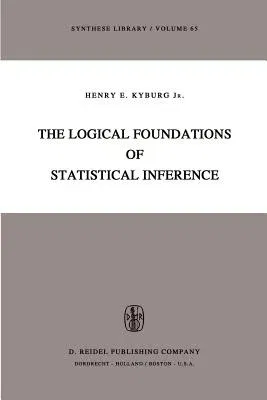Henry E Kyburg Jr
(Author)The Logical Foundations of Statistical Inference (Softcover Reprint of the Original 1st 1974)Paperback - Softcover Reprint of the Original 1st 1974, 31 July 1974

Qty
1
Turbo
Ships in 2 - 3 days
In Stock
Free Delivery
Cash on Delivery
15 Days
Free Returns
Secure Checkout
Part of Series
Synthese Library
Part of Series
Synthese Library (Paperback)
Part of Series
Synthese Library (Hardcover)
Print Length
433 pages
Language
English
Publisher
Springer
Date Published
31 Jul 1974
ISBN-10
9027704309
ISBN-13
9789027704306
Description
Product Details
Author:
Book Edition:
Softcover Reprint of the Original 1st 1974
Book Format:
Paperback
Country of Origin:
US
Date Published:
31 July 1974
Dimensions:
23.39 x
15.62 x
2.64 cm
ISBN-10:
9027704309
ISBN-13:
9789027704306
Language:
English
Location:
Dordrecht
Pages:
433
Publisher:
Weight:
616.89 gm

